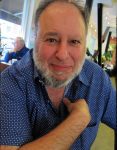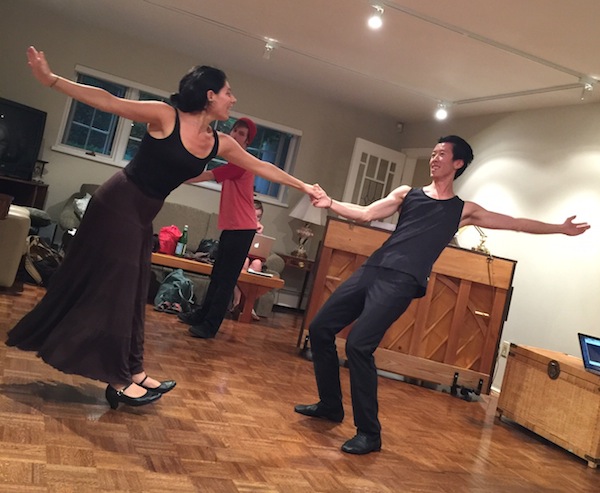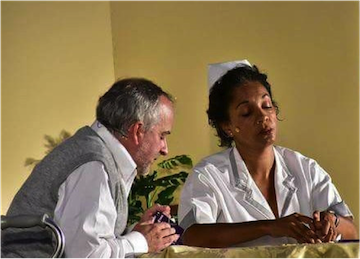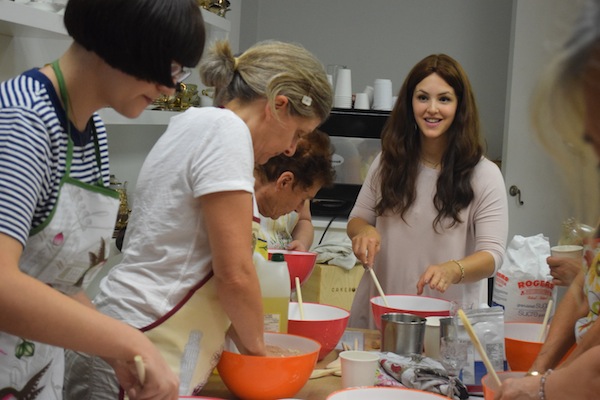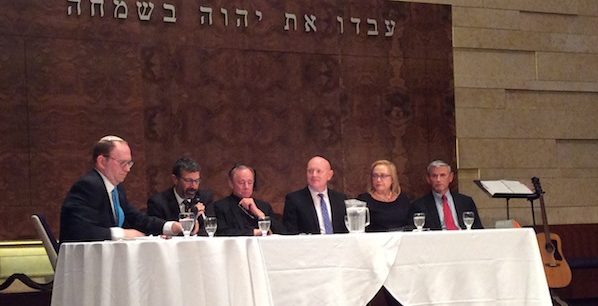Gary Cristall (photo by Brian Nation)
‘My Jewish identity has always been associated with the struggle for basic human values and rights and freedoms,” said Gary Cristall, co-founder of the Vancouver Folk Music Festival, in conversation with the Jewish Independent. “I thought that was the centre, was the core of being Jewish. That was the way I was raised and the stories that were told. I had two identifications with being Jewish – one was social justice, and the other was culinary. I worshipped at Schwartz’s Deli in Montreal.”
A longtime advocate for both the arts and progressive politics, whose passion was forged in the Canadian left of the 1950s and ’60s, Cristall is a cultural pioneer. He co-founded the Vancouver Folk Music Festival in 1978, later serving as its coordinator and artistic director until 1994.
As well as being an educator, activist and promoter, Cristall has fought for artists, struggling to win them professional respect while also defending their rights to fair fees and copyright ownership. For his range of work, he was awarded an honourary doctorate by the University of British Columbia in 2015 and was recognized as an outstanding alumnus of Simon Fraser University in 2017.
Cristall sees his involvement in activism and folk music as natural outgrowths of the culture in which he was raised. “Jews played a major role in folk music in this country, and in the States,” he said. “There were around 50 Jews who invented folk music. It was a conspiracy that was so successful no one understood what had happened.”
Cristall estimates that about 10,000 people attended the first Vancouver Folk Music Festival in 1978. This year’s festival, which takes place July 13-15, is expected to draw more than 35,000 people to Jericho Beach, where the event has been located since 1979. Seven stages are set up in the park and every available inch of parking space in the neighbourhood disappears. This year’s festival will present more than 50 concerts or workshops by artists from around the world, as well as an artisan market and a range of food vendors.
Beyond the festival, Cristall has served in the Canada Council for the Arts and was the founding president of the Public Service Alliance of Canada.
“When the CCA hired me, I was getting tired, getting ready to leave the festival, wondering what I would do next,” Cristall said. “When I saw the job ad, I thought, they’ll never hire me, but they’ll interview me and I’ll get a free trip to see my mother in Toronto. But they were looking to make a change, and they were interested in me because I was a shit-disturber and a rabble-rouser. They called my bluff, and said, ‘OK, you want to change things, come work for us.’”
Today, Cristall is at both Douglas College and Capilano University, where he teaches Canadian cultural policy and arts administration. He has spent 18 years working on a history of folk music in English-speaking Canada, which, he joked, is “1,200 pages written so far, a few hundred pages left to go.”
Asked about what he’s looking forward to at the festival year, Cristall reeled off a list of a dozen performers and what’s special about them. Among them, he mentioned Rodney Crowell, “a brilliant songwriter”; Guy Davis, a “great blues player, son of Ossie Davis and Ruby Dee, left-wing Harlem artists going way back”; Les Poules à Colin, “young people who are the children of that first revival generation of Quebecois folk music”; the Dead South, “Saskatchewan bluegrass”; Dálava, “a Moravian group doing avant-garde classical and folk and jazz music”; Dori Freeman, whose hometown, Galax, Va., “was a centre of old-timey music”; Vancouver’s Gord Grdina, who “plays the oud and is a brilliant guitar player, got a Juno, plays with a 10-piece band”; A Familia Machado, a “great guitar player playing with two members of his family from Brazil”; and Archie Roach “from Australia, a senior aboriginal songwriter.”
As he spoke, the enthusiasm poured off of him. Cristall is clearly still a man who loves music. “They’re the real thing,” he said. “That’s what I like about the folk festival, it’s the real thing.”
In his list of highlights, Cristall notably passed over most of the more well-known acts playing at the festival, names like Art Bergmann, Ry Cooder, the Mariel Buckley Band, Neko Case and indigenous artist and 2018 Juno nominee Iskwé. “What I love about the folk festival is not just seeing the big names, but seeing someone I never heard of before and come home loving,” said Cristall.
How does the world look to a longtime activist like Cristall? What’s his advice to the next generation?
“My hope is very much alive,” he said. “My Zaida was imprisoned for political activism, and he escaped and came to Canada. I’ve been active since 1965. We have to keep on fighting, nothing says we’re going to win quickly. I’m not pessimistic. Every movement has its ups and downs and nobody said that we were going to win fast and easy. My advice to younger people is get involved, educate yourself, learn and fight. That also connects to the kind of music [at the festival], both implicitly and explicitly – the music is a struggle to survive against the behemoth of capitalism and the fact that those artists have survived is a cultural victory. Hey, it’s too late to be pessimistic.”
For the full festival lineup and tickets, visit thefestival.bc.ca.
Matthew Gindin is a freelance journalist, writer and lecturer. He is Pacific correspondent for the CJN, writes regularly for the Forward, Tricycle and the Wisdom Daily, and has been published in Sojourners, Religion Dispatches and elsewhere. He can be found on Medium and Twitter.

